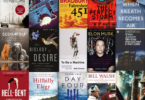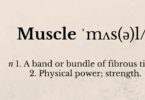As almost everyone knows by now, you’re probably more likely to be killed by your own sofa than a shark. In the US alone, for instance, 650 people were killed by falls from beds, chairs or ‘other household furniture’ in the year 2000 alone (not an especially bad year), while there are about five shark-attack deaths per year worldwide. Those are pretty good odds. Here’s a tougher one: do you think you’re more likely to be killed by your sofa, or terrorists? Answer in a second.
First: even if you’re inclined to say ‘sofa’ because this is obviously a trick question, why does your brain immediately shriek ‘terrorist’? Short version: it’s caused by something known as your brain’s availability heuristic. It’s a shortcut your mind takes to judge the probability of events by how quickly – and crucially, how easily – examples can come to mind. Most of the time our brains do this on automatic pilot, and often the results are helpful. Other times, less so. If someone asks you whether more English words begin with T or K, for instance, you might guess T, because you can instantly think of more T-words – and you’d be right. If they asked you whether more English words begin with the letter K, or have K as their third letter, you’d probably guess the former again, because examples spring more easily to mind – but this time, you’d be wrong. It’s possible that this sort of shortcut was a lot more helpful in primitive times, when you were exposed to less information (and had less access to peer-reviewed studies). If you heard about two people being killed by sabretooth tiger attacks, for instance, you’d probably be right to be slightly more wary of sabretooth tigers, because those people would probably be in your immediate area. If someone told you they’d found berries near a big expanse of water, then looking near big expanses of water for berries would be a good idea, based on the information available. This is not a good approach to playing the national lottery.
Where your poor primitive synapses gets really fried, of course, is by the modern media.
The first problem is that, to your shortcut-loving brain, vivid and dramatic events come to mind more easily, and the second is that the media over-emphasises vivid and dramatic events because they’re more exciting. A less obvious (but arguably just as bad) problem is that counter-intuitive news reports are also easier to remember, because they’re counter intuitive. Earlier this week, for instance, several respected news sources reported a study saying that running ‘might kill you.’ As the NHS have already pointed out, the study was so limited (and the differences it found so small) that you can’t really draw any conclusions from it at all, but the damage is done – some people won’t have read anything but the headline, and that’s what they’ll remember when they’re next trying to decide whether to do some exercise or relax and have a cake. In fairness to the media, of course, ‘Breaking news: being fat/lazy is still killing you’ is not a great headline, any more than ‘Green veg: still good,’ and in a media environment where clickbait headlines are (almost) all that matters, media is in a difficult position. But what that means is that you need to take a bit of responsibility for your life, and the lives of people you care about.
So what’s the answer to the terrorism/furniture question? Tricky one: according to recent reports (from the US) it seems about equal. Where it’s not even close is in non-communicable diseases: in the same year, in the US, they accounted for 87% of all deaths, with cardiovascular diseases topping the chart. Every time these figures are published, health organisations point out that these diseases are primarily caused by four behavioral risk factors – smoking, diet, lack of physical activity, and alcohol – all four of which can be mitigated if you’re just prepared to put a bit more effort in. Meanwhile, while you’re scanning news reports to see what will/won’t kill you according to a fuzzy reading of badly-done research this week, the principles of not dying for a while (more green veg, moving around a bit) are established beyond any reasonable doubt.
So here’s the real point: by eating a Krispy Kreme Love Bug Hug today, you are not only falling victim to the worst defects of your stupid chimp brain and increasing your chances of succumbing to ailments that are a) Predictable and b) Likely, you are letting the terrorists win. Because the point of terrorism is to spread terror, and if you’re even a little bit more worried about being killed by terrorists than by a myriad of lifestyle-based diseases that are trying to rob you of your twilight years with your adorable grandchildren, then you are, quite seriously, doing the terrorists’ job for them. You are overestimating their power, and their importance, compared to the things that are actually going to kill you. And that’s what they want. So instead: eat some spinach, go for a walk this lunchtime, drink some water, and remember that you’re incredibly unlikely to be killed by a shark, a sofa…or a terrorist. And enjoy your day.
HOMEWORK: Combat your brain’s natural tendency to jump on scare stories, and focus on what’s really killing you. Stick a note on the fridge reminding you to eat more vegetables. Set up a Pomodoro timer at work telling you to get up and walk around occasionally. Set a reminder on your phone telling you to do some pressups. Don’t rely on the media or your brain to help – and don’t let the terrorists win.








I’m far from sure that it’s right to say
“principles of not dying for a while (more green veg, moving around a bit) are established beyond any reasonable doubt.”
The effects of both diet and exercise seem to be quite small, and there are serious doubts about causality for both.
John Ioannidis is good on these topics.
http://www.dcscience.net/2013/11/18/we-know-little-about-the-effect-of-diet-on-health-thats-why-so-much-is-written-about-it/
Really love this article Joel and I’ve just read Thinking fast and slow so it really resonates. Important points that many could do with thinking about!